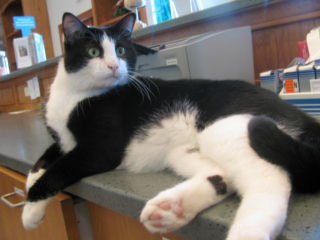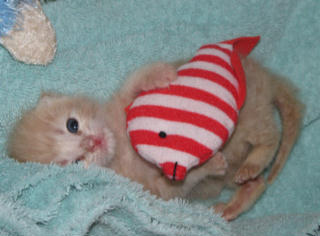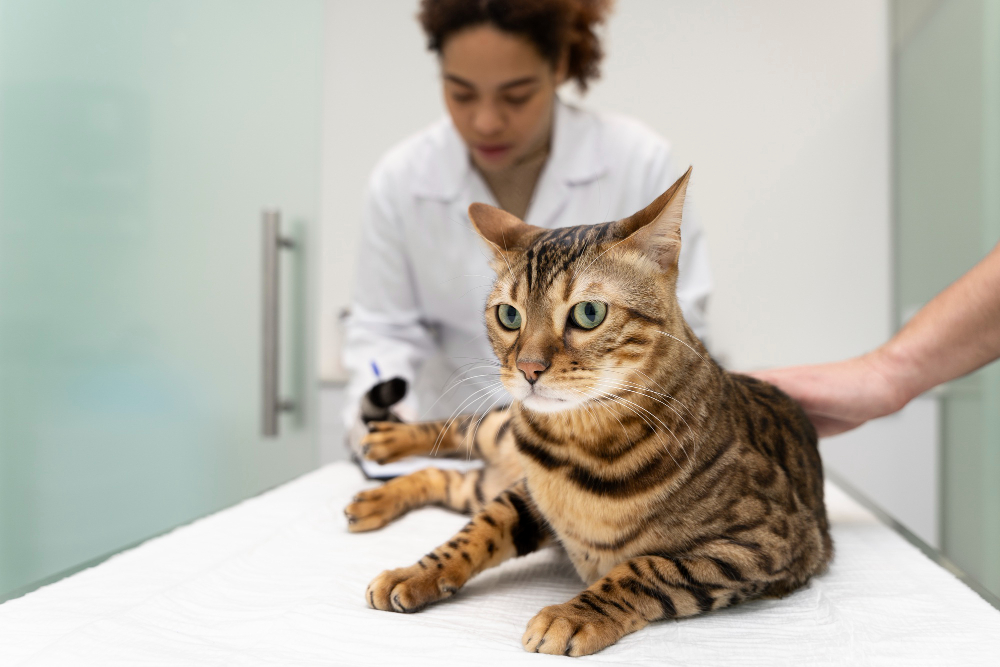Feline Vaccinations
At True Companion Animal Hospital, we prioritize the well-being of your feline friends through our comprehensive feline vaccination services.
Feline Vaccinations in Spring, TX
Our expert veterinary team tailors vaccination protocols to your cat’s unique needs, ensuring they receive essential protection against prevalent diseases.
Feline Vaccinations
FVRCP – This is a modified live vaccine that protects against multiple organisms.
FELINE VIRAL RHINOTRACHEITIS – A disease of the upper respiratory tract caused by a herpes virus. This disease is extremely common and resembles a human cold. Infected cats and kittens sneeze, are congested and have runny eyes. Herpesviruses are characterized by their ability to induce a latent state.
Herpesvirus infects cats for life. The majority of the time, this infection is latent, and the cat is not ill. However, in times of stress, the virus can reassert itself, and the cat may sneeze or suffer from eye irritation.
LATENCY – The ability of an organism to infect an animal but cause no clinical manifestation of the disease (The animal is infected but is not sick).
CALICIVIRUS – A virus that causes upper respiratory clinical signs similar to Feline Viral Rhinotracheitis.
PANLEUKOPENIA – A viral disease of young kittens characterized by severe vomiting and diarrhea.
FVRCP vaccines are given in the following manner:
- Kittens beginning at 6-8 weeks
- Booster every 3-4 weeks until the
- Kitten is over 15 weeks of age
- Booster again in one year
- Vaccinate every three years
- Thereafter indoor cats
- Vaccinate yearly outdoor cats or cats that board frequently
Rabies
A viral disease which can be transmitted between animals and humans. The virus is maintained in foxes, bats, skunks, and raccoons. Texas state law allows vaccination every three years; however, we choose to vaccinate all cats yearly for Rabies in order to avoid exposing your cat to adjuvants (see box below). Kittens must be over 12 weeks in order to receive their first vaccine.
Rabies vaccines are given in the following manner:
- Kittens no earlier than 12 weeks of age.
- Booster yearly thereafter
Fibrosarcoma Risk: In some cases, vaccines have been associated with a tumor at the injection site called “fibrosarcoma”.
This risk is due to the presence of adjuvants in some vaccines. Adjuvants are chemicals that stabilize three-year vaccines and help stimulate extended immunity.

FELINE LEUKEMIA
This viral disease is invariably fatal. It is transferred from cat to cat through shared contact. (co-grooming, shared dishes). Infected cats are immunosuppressed, often exhibiting chronic diarrhea and recurrent infections. The virus can also cause cancer. Feline leukemia is maintained in the feral cat population. It is imperative that ALL cats that go outside are immunized against feline leukemia.
We strongly recommend that ALL cats including totally indoor cats be immunized against Feline Leukemia as kittens. If you choose not to immunize your indoor cats, you must remember that they are at great risk if they get loose outside or are exposed to an infected new cat brought into your home.
Feline Leukemia vaccines are given in the following manner:
- Kittens beginning at 9 weeks
- Give one booster 3-4 weeks later
- Booster again in one year
- Vaccinate every three years thereafter in outdoor cats.
- Vaccinate only if owner chooses in indoor cats.

If you have any questions about our services, please contact us today at (281) 363-8708.

